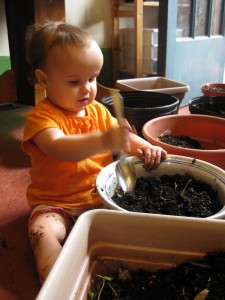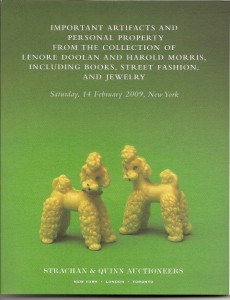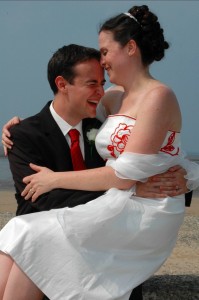June 23, 2010
An important tradition of English writers
“But the novels also belong to an important tradition of English writers, mostly women – Elizabeth Bowen and Elizabeth Taylor and Rumer Godden and Penelope Fitzgerald among them – whose subject is the old world of class and empire, and the systems of education and intricate cultural codes that supported it. Sharing that world’s know-how, vigilant over its precise local expertise, these writers nonetheless never quite belong with both feet inside it, or quite participate in its whole power; they survey it from a position sanely detached, defined by irony. They find that freedom perhaps because they’re Anglo-Irish, or Anglo-Indian, or penniless, or from the north (a significant marker for Gardam), perhaps simply because they’re women. They relish the framework that the codes give (‘life with the lid on’, in Bowen’s phrase), and do justice to the best that these embodied, but never forget the inequity, or the costs of forcing life into rigid forms.” –from “Thank God for Betty” by Tessa Hadley, LRB Vol. 32 No. 5 · 11 March 2010
June 22, 2010
Important Artifacts 2
I’ve been thinking more about “thingness” as narrative since reading Carin’s comment on my last post (and it was her review that brought me to read Important Artifacts and Personal Property… by the way). She remarked that the hipster aspect of Lenore Doolan and Harold Morris’ life together was probably to emphasize its emptiness, that it all looked very slick but was without substance. That a couple can’t build a life together on vintage bathing suits alone. And so Shapton’s text was to be a counter-narrative to the thingness then, making clear what was going on beneath surface? I’m not totally convinced, but it’s an interesting idea to consider.
What I am convinced of, however, and what the book makes clear, is that these glimpses we’re given into other people’s lives (whether by auction catalogues, lit windows or Facebook data) is often so deceiving. Partly because what we glimpse is so contrived, (which is Shapton’s entire point), particularly since social media is such a performance. Because I’m all too aware of the view of my window from the sidewalk, because I’ve actually spent my whole life cultivating such a view, but you’re never really going to know what happens when I pull the blinds down, are you?
Motherhood is the best example of this, particularly its presentation via social media. I was devastated last year when my daughter was born, and I found my feelings in the days afterwards so far from the obligatory “Kerry is totally and utterly blissed out and in love with her gorgeous new daughter” status update. Everybody writes statuses like that, and I absolutely couldn’t, and at that point I didn’t know how many moms were just more capable of lying than I was (or of being “blissed out in love” in addition to having a pretty terrible time, but the terrible time itself they never cared to mention). All all of us have a “just given birth, baby on the chest” photo somewhere in our Facebook stash, but it so doesn’t begin to tell my story. We let it stand in for the story, because it’s more comfortable that way, but that doesn’t even begin to stand in for the real thing.
Of course, it’s not supposed to. Online anywhere is not the best place for private life anyway, and there is something to be said for keeping some things to yourself. But I must say that I was fooled by the Facebook motherhood narrative. The blissed out love, the dreamy photos, the quiet baby asleep in a bouncy chair– it did not convey the effort it took to get that baby to sleep. The effort it took to get that mom out of her pyjamas. I felt so incredibly inadequate for not being able to put myself back together as easily as my FB friends had, for being thoroughly miserable when I should have been blissed out in love. I had been expecting blissed out love because I’d perused so many of the pictures. And how could a picture lie?
But they do. They don’t just withhold– they totally lie.
There is no longer such thing as a candid shot, if there even ever was.
June 21, 2010
Harriet gardening
 You probably shouldn’t let your baby dig in soil with a spoon. Because while spoons are good digging implements, they’re also good for delivering items to the mouth, and though Harriet’s spoon/mouth coordination is not always right on track, it certainly was the time she ate a giant spoonful of soil… So it was kind of a milestone, times two if eating dirt is also a milestone. Is it?
You probably shouldn’t let your baby dig in soil with a spoon. Because while spoons are good digging implements, they’re also good for delivering items to the mouth, and though Harriet’s spoon/mouth coordination is not always right on track, it certainly was the time she ate a giant spoonful of soil… So it was kind of a milestone, times two if eating dirt is also a milestone. Is it?
June 20, 2010
The Particular Sadness of Lemon Cake by Aimee Bender
 The Particular Sadness of Lemon Cake begins with Rose Edelstein, aged eight, helping herself to a bite of cake and becoming overwhemed by an awareness of her mother’s profound sadness. This awareness is devastating, and has enormous implications: that her mother is human, that life is complicated, that Rose is powerless to control the world around her. Childhood naivete ends at this point, when Rose realizes that she can taste people’s feelings in the food they create– her mother’s sadness makes family dinners unbearable, she eats a friend’s sandwhich and is “envious… that this lightness was where she came from”, and so the vending machines at school supply her with sustenence, the relief of their bland and innocuous factory flavour.
The Particular Sadness of Lemon Cake begins with Rose Edelstein, aged eight, helping herself to a bite of cake and becoming overwhemed by an awareness of her mother’s profound sadness. This awareness is devastating, and has enormous implications: that her mother is human, that life is complicated, that Rose is powerless to control the world around her. Childhood naivete ends at this point, when Rose realizes that she can taste people’s feelings in the food they create– her mother’s sadness makes family dinners unbearable, she eats a friend’s sandwhich and is “envious… that this lightness was where she came from”, and so the vending machines at school supply her with sustenence, the relief of their bland and innocuous factory flavour.
Aimee Bender is known for her short stories, and this seems like the perfect premise for one of these. The novel reading like an extended short story itself– the perfection of the details, the minute observation, the sense of play and whimsy, the genre-bending, the fantastic. And yet this is decidedly a novel too, with great expansiveness, development, and enormous weight. Cake-like, airy and solid.
There is so much that Bender gets absolutely right. Her narrative voice is a stellar achievement, Rose reminiscent of Ramona Quimby as the book begins, and yet undercut by a darker tone that takes over as the book proceeds. Bender manages a perfect balance of wide-eyed child and wry observer (see “[Dad] always seemed like a guest to me. ‘Welcome home,’ I said.” vs. “he loved her the way a bird-watcher’s heart leaps when he hears the call of the roseate spoonbill, a fluffy pink wader calling its lilting coo-coo from the mangroves”.) The story is perfectly timeless, flying on its own steam, freed from the cumbrousness of period. It has the tone and appeal of a YA novel– elements of A Wrinkle in Time in addition to Ramona. And yet, YA this is not– the sadness is heavy, the emotions complicated and awful, and too much for even Rose to understand.
With amazing acuity, Bender shows Rose’s reaction to her burden of empathy– how she eats an entire slice of the cake in an effort to convince herself that everything is fine, that she made up her feelings, but Rose only feels her mother’s sadness more, and how she tries to console her mother but doesn’t know what she wants or needs, and how Rose tries to explain that she can taste a hollow in her mother’s cake but can’t explain it well enough, and how after so much explaining, she eventually keeps it to herself.
Rose’s ability to taste feelings actually becomes secondary as the novel progresses, fading to the background– this is a novel with most of its two feet in reality. Understatement makes Rose’s affliction almost plausible, and we’re not meant to consider it too much anyway, but the story continues to be about her family’s dynamics, and how Rose deals with knowledge of her mother’s sadness as her older brother begins to retreat into his own world. It’s also about food, taste and eating, and where our food comes from, how little most of us actually consider this. And it’s about childhood, and things better unlearned, and a yearning to return to a simpler place that has been tainted by what is known now.
And so onto the bandwagon I jump, late for the party as always. Go Aimee Bender, whose novel is perfectly unlike anything else, and also perfectly perfect.
June 19, 2010
Important artifacts
 I just finished reading Important Artifacts and Personal Property from the Collection of Lenore Doolan and Harold Morris, Including Books, Street Fashion, and Jewelry by Leanne Shapton, the devourable if gimmicky story in the form of auction catalogue. And thought I do think it must have been exhausting for Doolan and Morris to be so insufferably hip at all times (did these people never buy anything at The Gap? did they ever tire of the kitchsy salt-and-pepper shakers and vintage everythings?), I loved the book a lot, though in the same way I like peering through strangers’ windows, looking through people’s bookshelves, and perusing Facebook albums of people I’ve never met.
I just finished reading Important Artifacts and Personal Property from the Collection of Lenore Doolan and Harold Morris, Including Books, Street Fashion, and Jewelry by Leanne Shapton, the devourable if gimmicky story in the form of auction catalogue. And thought I do think it must have been exhausting for Doolan and Morris to be so insufferably hip at all times (did these people never buy anything at The Gap? did they ever tire of the kitchsy salt-and-pepper shakers and vintage everythings?), I loved the book a lot, though in the same way I like peering through strangers’ windows, looking through people’s bookshelves, and perusing Facebook albums of people I’ve never met.
If Shapton’s intention is to tell a story through physical objects, however, it’s worth remarking upon that she doesn’t succeed. Sure, the story is told, but it’s words as usual that do the job– lists stuck into paperbacks, exchanges scrawled on theatre programs, letters unsent and otherwise, emails, and postcards. In essence, Important Artifacts is an epistolary novel, the artifacts themselves serving as espistle storage devices.
Without the epistles, the objects lack in resonance (though they do add a postmodern layer of veracity to the narrative in the same way the family pictures in The Stone Diaries turned that book into something much fuller than a novel). The objects don’t tell the whole story though, just as a view through a window doesn’t, or a bookshelf, or any infinite number of Facebook albums– but why are these things so compelling all the same?
I wonder if– outside of fictional realms– such fragments come closer to a kind of truth than anything else can? And I wonder how much of the pleasure lies in making the connections by ourselves.
June 18, 2010
Our Wooden Anniversary
 Five years ago, Stuart and I got married in the Northwest of England following a fourteen month sojourn in Japan, and two weeks after our wedding, we moved to Canada. Our wedding was the wedding of my dreams for many reasons, not least of which were the blazing sunshine and the friends and family all around us. But most of all, it was the wedding of my dreams because I married Stuart, who I like better than perhaps anyone, whose company I’ve never grown tired of, who I’m so lucky to begin every day with, who was always very understanding when I shouted terrible things when the baby was new and life was terrible, who doesn’t protest when I decide to bake a pie late at night and even does the washing-up, who goes out on pomegranate errands to satisfy my whims, who is my favourite co-pilot, who is funny even when I’m not overtired (but particularly hilarious when I am), who goes to work so I don’t have to, who gets up in the morning with the baby and lets me sleep in, and who last month left work early in order to buy me a new bathing suit because mine had disappeared a half hour before swimming lessons started and the alternative was me going swimming in my underwear. He really is the best ever, the foundation of all my happiness, and my respect for him gets bigger all the time.
Five years ago, Stuart and I got married in the Northwest of England following a fourteen month sojourn in Japan, and two weeks after our wedding, we moved to Canada. Our wedding was the wedding of my dreams for many reasons, not least of which were the blazing sunshine and the friends and family all around us. But most of all, it was the wedding of my dreams because I married Stuart, who I like better than perhaps anyone, whose company I’ve never grown tired of, who I’m so lucky to begin every day with, who was always very understanding when I shouted terrible things when the baby was new and life was terrible, who doesn’t protest when I decide to bake a pie late at night and even does the washing-up, who goes out on pomegranate errands to satisfy my whims, who is my favourite co-pilot, who is funny even when I’m not overtired (but particularly hilarious when I am), who goes to work so I don’t have to, who gets up in the morning with the baby and lets me sleep in, and who last month left work early in order to buy me a new bathing suit because mine had disappeared a half hour before swimming lessons started and the alternative was me going swimming in my underwear. He really is the best ever, the foundation of all my happiness, and my respect for him gets bigger all the time.
June 15, 2010
On "There, you see?" criticism
I do hope that the ridiculous parts of of Andre Alexis’ essay The Long Decline don’t undermine his valid points about Canadian literary criticism. I note in particular the statement about the critic who “…takes sentences or paragraphs that he considers examples of brilliant writing and then does the written equivalent of pointing and saying, “There, you see?”
Though just as often, the critic does the same thing with what he purports to be bad writing, supposing the evidence speaks for itself. The problem is, however, that the evidence rarely does. Mostly because there is no such thing as “brilliant writing”, or if there is, it’s only because it’s the writing one happens to like. (And if the evidence spoke for itself, really, what would be the need for critics?)
I want a critic to convince me, the way Steven Beattie did in his essay “Fuck Books“. Or perhaps what I mean is that I want a critic to make his case, because although I don’t agree with Beattie’s general assessment of Canadian Literature, the specific points within his essay are laid out and evidenced so clearly. He argues that Rebecca Rosenblum’s story “Fruit Factory” is “a far more effective – and affecting – portrait of blue-collar experience than anything in In the Skin of a Lion” and uses an excerpt. Instead of just pointing to that excerpt with a “There, you see?”, however, he goes on:
“Notice the way Rosenblum employs sparseness and repetition to capture the combined monotony and pressure of a labourer’s days… Rosenblum’s story is steeped in the rhythms of modern urban reality; the drumming beat of her sentences reflects her character’s lived experience. This is writing that sizzles and snaps, largely because it appears almost completely unadorned. In today’s CanLit, that in itself counts as an innovation.”
To be honest, “writing that sizzles and snaps” means precisely nothing, and it’s the kind of statement many critics use instead of “There, you see?” But with Beattie’s exceptionally close reading of the story and his concrete examples, I completely understand what he’s talking about. The work is almost revivified by his treatment of it.
Whereas, “There, you see?” criticism is dead on arrival, lazy, arrogant, a certain way to write one’s self into obsolesence, and I see this stuff all the time. So I do think Alexis makes a good point. Whether he makes his point well, however, is another matter…
June 14, 2010
Author Interviews @ Pickle Me This: Sheree Fitch
 A few months ago, The Afterword ran their Canada Also Reads, and I noticed a novel by Sheree Fitch on the longlist. At that point, I knew Sheree Fitch from the much-adored board book Kisses Kisses Baby-O(which, incidentally, was provided to all newborns in Nova Scotia in 2008 as part of a program called Read to Me) and I was intrigued to read a novel by its author. So I read Kiss the Joy as it Flies over a couple of days last winter, which brought me such pleasure. And seriously, pleasure in January is an elusive creature, and so I decided email Fitch and thank her for a glimpse of it. Her response was very kind, and this email interview grew out of our conversation.
A few months ago, The Afterword ran their Canada Also Reads, and I noticed a novel by Sheree Fitch on the longlist. At that point, I knew Sheree Fitch from the much-adored board book Kisses Kisses Baby-O(which, incidentally, was provided to all newborns in Nova Scotia in 2008 as part of a program called Read to Me) and I was intrigued to read a novel by its author. So I read Kiss the Joy as it Flies over a couple of days last winter, which brought me such pleasure. And seriously, pleasure in January is an elusive creature, and so I decided email Fitch and thank her for a glimpse of it. Her response was very kind, and this email interview grew out of our conversation.
Sheree Fitch is amazing– here’s proof. Though I have read her picture book Peek A Little Boo every day for the past six months, I am not remotely tired of it. Her poetry collection for adults In This House There Are Many Women is sad, wise and funny. Her first novel for adults Kiss the Joy as it Flies, I decided, was “Fannie Flagg meets Miriam Toews”. When I bought Sleeping Dragons All Around for Harriet, it was really a gift for me. Fitch has also written novels for young adults, and the latest, Pluto’s Ghost, is out in September.
I: I just started re-reading Kiss the Joy as It Flies this morning, and joy indeed. In order to write a novel, did your poetry have to be tamed into prose? What was that process like?
SF: A good question. Short answer would be yes. But… not that simple.
I’ve been writing ( seriously) since the age of 20. In the beginning, I was writing short stories. I wanted to be Alice Munro. I took a short story and play-writing and poetry course– I was interested in all and any kind of writing. As things turned out, my first published work was a short story for children. I was inspired every day by my own and so I started writing “for” them. I decided I would learn everything I possibly could about the art and craft of writing for children and I soon found myself gravitating towards nonsense– word play and the oral tradition combined. I was hooked — mostly by the pure joy in playing with language the genre allowed. So I kept exploring other genres and this included adult poetry –much more sober content, free-verse– but still I had a sense of working in an oral tradition. “Utterature” I called it in my master’s thesis.
After a little over a decade of mostly focusing on verse and poetry, going to prose meant the orality was gone– and I really did not like that! I knew if I was ever to go back to prose that language would still be paramount and voice would become very important– either voice of character or voice of narrator.
The Gravesavers –my novel for early teens took me, yes it did, eight years of working on and off. And this is where I tamed the poet and rhymster long enough to do things like develop character and learn and manage narrative arc. I think work in radio and drama and some film helped too in terms of sense of story etc.
But I am painfully slow. The book that comes out this year took five years. Senior teens and up but again, language and word sparks and how it sounds in the reading. Cadence– all things I still work with. Vital. It is challenging because I am pretty sure I hear words the way many people hear musical notes. Say MUD. Say Zamboni. Every word is a poem if you want it to be. So Kiss the Joy… was me intentionally writing a novel and finding a storytelling voice for adult work that word-played in ways that I hoped was fresh and would lend to a great out-loud reading.
cling clang the way words bang
slip slide and boomerang around
the alphabet’s surround sound
and me —a wannabe composer
a writer who is Clown.
I have a fave line in the novel, but you will have to ask…
I: So I’ll ask?
SF: The line is on page 263, second paragraph. “Mercy rose, washed, ate, brushed, flossed, flushed, dressed, scrunched, lip-glossed,  smacked, smiled, dabbed, patted, changed, fluffed, fed the cat, and left.” A line like in a kids book and all alliteratively tongue twisty– but the storyteller of Mercy, that omnipotent narrator was playful. Next time , who knows?
smacked, smiled, dabbed, patted, changed, fluffed, fed the cat, and left.” A line like in a kids book and all alliteratively tongue twisty– but the storyteller of Mercy, that omnipotent narrator was playful. Next time , who knows?
I: Is there any sense to nonsense? (“Cervix, ovaries, clitoris, uterus, vagina, Saskatchewan. She giggled, remembering the silliness from childhood.”) If nonsense is useful, is it something specific to childhood? Why are adults so drawn to sobriety?
SF: Oh– this is a huge conversation we could have. Think of the fool in Shakespeare. Think of the concept of holy fool, the not knowing, wise person. In a world that makes no sense to me, making nonsense has always made sense to me.
So yes, I actually, honestly, think nonsense is an art form in which profound truths can be revealed. Not always. Sometimes. A kind of tricksterism.
If you read The Clown at the Foot of the Ladder by Henry Miller, or Henrich Boll’s The Clown, they are two books that explore this in different ways. Look at one line punch line zingers…in Dorothy Parker.. pow pow.
These clown books I just mentioned are not funny but illustrate my fascination with the sad/ happy contradictions inherent in life, like the sunshower Mercy Beth finds so strange. She herself is some kind of an admirable frustrating lovable buffoon to me.
I am doing an essay for publication based on a convocation speech I just gave called “Lessons I Keep On Learning” and will explain “play” and nonsense a bit more. (I love to ruminate…..a Mercy wannabe.)
I think I admire comedic genius most. (more…)
June 14, 2010
I am having an affair
 …with this yardsale-purchased breadbox. We have decided to move in together.
…with this yardsale-purchased breadbox. We have decided to move in together.
June 13, 2010
Wolf Hall by Hilary Mantel
 Everything I knew about Henry VIII before Wolf Hall, I learned from Herman’s Hermits. And I’d planned to keep it that way, because I really can’t stomach historical fiction. Even when it’s written by Hilary Mantel, who I’ve read through suburban black comedies, ghost stories, memoirs and literary fiction (my two favourites of hers have been Eight Months of Ghazzah Street, A Change of Climate, and An Experiment in Love).
Everything I knew about Henry VIII before Wolf Hall, I learned from Herman’s Hermits. And I’d planned to keep it that way, because I really can’t stomach historical fiction. Even when it’s written by Hilary Mantel, who I’ve read through suburban black comedies, ghost stories, memoirs and literary fiction (my two favourites of hers have been Eight Months of Ghazzah Street, A Change of Climate, and An Experiment in Love).
But then Wolf Hall won the Booker Prize, and it was nominated for the Orange Prize. And something else happened, though I don’t remember what Steph read it at Crooked House and included an excerpt as part of her babies in literature series, but it all led to me purchasing Wolf Hall when we were in England last fall. The book sat on my shelf for months and months, however, until I decided to tackle (most of) the Orange list, and so last Friday, I finally cracked the great tome (650 pages) open.
Once in a while I tried to remember why exactly I so disliked historical fiction, particularly since I never actually read any of it, but reading Wolf Hall did make my feelings quite clear to me. That the genre necessitates 650 page books, for one thing. In non-historical fiction, wouldn’t an editor do something about a book in which all of the major male characters are called Thomas or Henry? And a pace that goes so quickly, too quickly, and then you find yourself having to refer back to earlier passages, but how is one to find these in a 650 page book??
But, Wolf Hall was readable. It was. I was mainly reading it so I could finally say I actually had, but I found myself enjoying it too. It’s not an easy book, with so many characters and such a dense plot, and Mantel’s prose is not always immediately accessible (and yes, the pronouns were a struggle, but there’s a reason for it. “He” is usually always Thomas Cromwell, to show that Cromwell was everywhere.) But the story, about Cromwell’s rise and rise from lowly blacksmiths’ son to chief advisor to the King of England was fascinating, and Mantel has made Cromwell a complex, sympathetic and wonderfully-difficult character.
I didn’t really understand how fascinating this novel was, however, until I reread its review from the London Review of Books (which I’d read when it was published, but got nothing out of having not yet read the book, of course). The review explains that Mantel’s real genius is rendering a three-dimensional character of Cromwell, about whom little is known, and allowing his mystery to remain fundamental to him. And that nothing within her novel is without significance, in fact more often than not, peripheral characters and details would go on to be instrumental in historical events to follow, though this significance is only hinted at in the novel (and then glossed over entirely by readers such as myself for whom Henry VIII had merely been married to the widow next door, and she’d been married seven times before…). Even the novel’s title Wolf Hall refers to a place only barely mentioned in the story, and the suggestion of a visit there comes in the very last paragraph (and here, according to the LRB review, would begin “the undoing of Anne Bolelyn”).
I recently read that Mantel is at work on a sequel to Wolf Hall, and now I’m quite stunned to find that I’ll not be able to help but to read it. Because the whole 650 pages here was merely in anticipation of what comes next, and what comes next is the rise of Jane Seymour, who was a lowly lady-in-waiting in this book, and the downfall of the Bolelyns, and even (though a few years beyond this) Elizabeth I (who here is just an ugly red-headed baby). To discover that Spanish Mary (in Wolf Hall, petulant, teenaged, and put-out by having just been made a retroactive bastard) becomes Queen herself somewhere down the line– seriously, these are the most tantalizing spoilers ever.
You couldn’t make this stuff up.





